
Gender equality is a human right. It is also essential for eradicating poverty and improving the lives of future generations. Gender equality is at the heart of all our programming and advocacy work. IPPF pushes for legal and policy reforms which combat female genital mutilation (FGM), early forced marriage and other forms of gender discrimination.
Articles by Gender equality
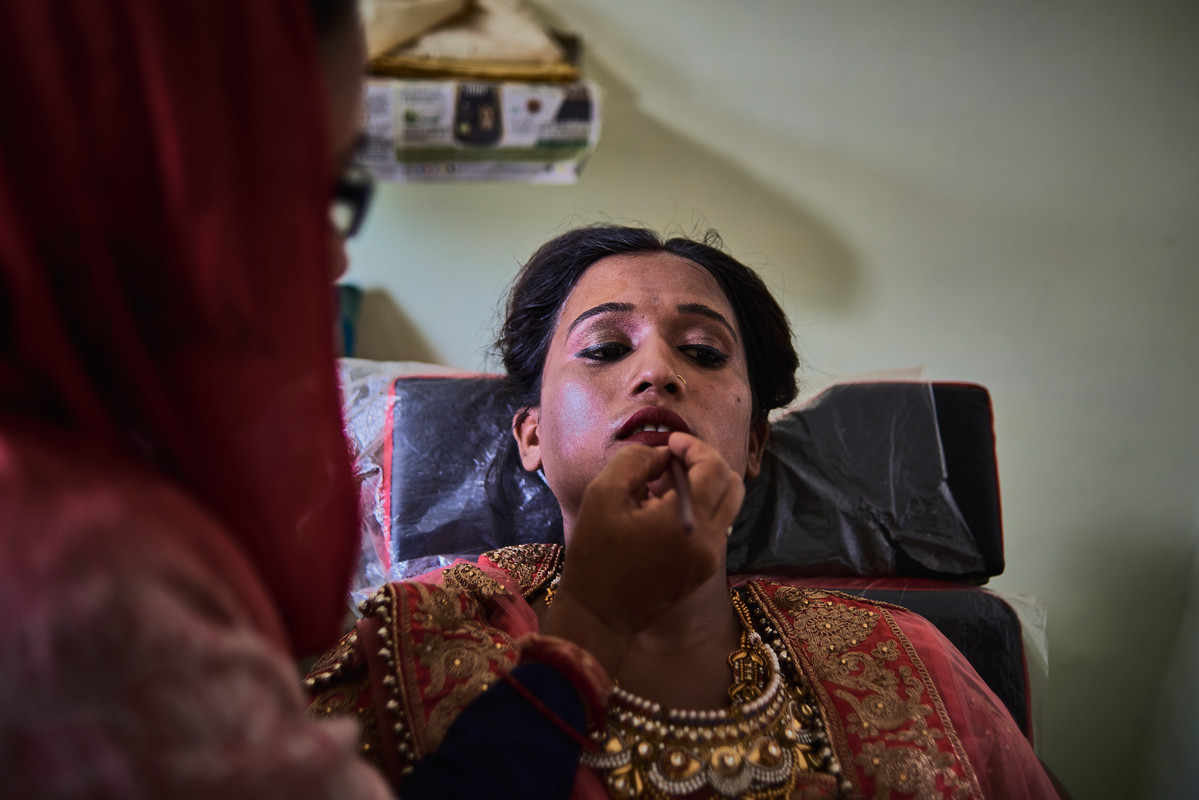
Watch - Beauty Behind Bars: Life after prison for women in India
India is home to 20 female-only prisons, that have the capacity to hold just 5,000 inmates. Women currently make up 4% of India's prison population. Before they reach prison, many women have already experienced sexual and gender-based violence. Many inmates face discrimination and are often ostracized from their community and their families once they are released. Realizing a gap in care for women once released, the Family Planning Association of India (FPAI) have stepped in to ensure women are equipped with not only healthcare whilst in prison but life training skills. Skills that will financially support them and their children with or without the support of their families. Established in 1949, the Family Planning Association of India has provided life skills training ranging from beauty parlour related work to car mechanics to 768 women in six locations.
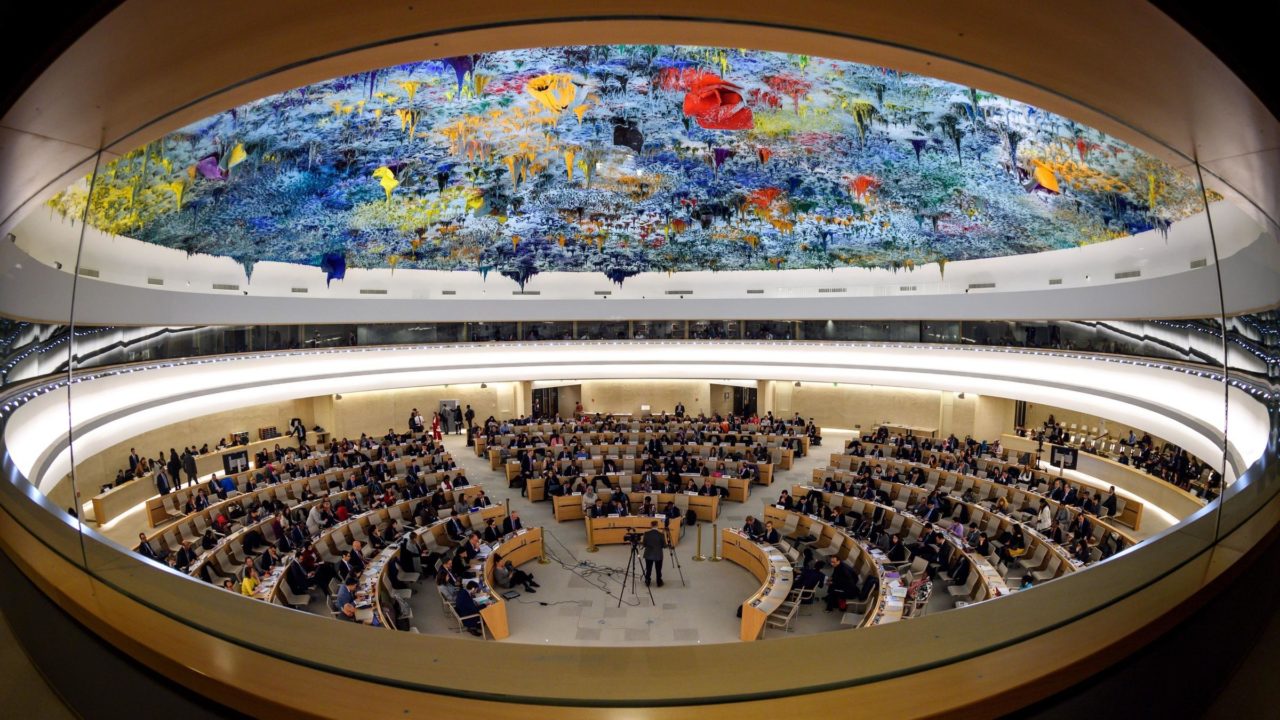
IPPF welcomes renewal of sexual orientation and gender identity mandate
IPPF strongly welcomes the renewal of the Mandate of the Independent Expert on protection against violence and discrimination based on sexual orientation and gender identity at the 41st session of the Human Rights Council that ends today in Geneva. The renewal of the mandate, first adopted in 2016, represents an unequivocal commitment by member states to the rights of LGBTQI+ people. This mandate has been critical in highlighting the human rights violations people around the world face because of discrimination and violence due to their real or perceived sexual orientation and gender identity. IPPF is very pleased with the adoption of this resolution proposed by a group of Latin American countries gathering the support of Governments from all regions of the world. As the reports of the Independent Expert have demonstrated over the years, discrimination and violence affect all aspects of people’s lives, including the very right to life itself, privacy and to be free from torture, cruel, inhuman and degrading treatment, as well as the ability to exercise the human rights to health, education, employment, housing and access to justice. IPPF supports all people’s right to live free from violence and discrimination on any grounds, including real or perceived sexual orientation and gender identity, and is committed to supporting the work of the Independent Expert to fully execute the mandate over the coming years. IPPF was actively involved in advocating for the renewal of this important mandate, working closely with a large coalition of civil society organizations and activists prior to and throughout the Human Rights Council session.

Fifty years on from the Stonewall Riots
In the early hours of the morning of 28 June 1969, police raided the Stonewall Inn in New York City, sparking six days of rioting (led by trans women of color Marsha P. Johnson and Sylvia Rivera) – a breaking point after years of tensions. This year marks the 50th anniversary of the riots, a moment of resistance by lesbian, gay, bisexual, and transgender people against discrimination, police harassment and exploitation. After the Stonewall Riots, many people were inspired to take action as LGBTI rights entered the spotlight. The Christopher Street Liberation Day march was organized on 28 June 1970 on the anniversary of the riots. Today we see annual Pride celebrations in many cities and countries around the world. The Stonewall Riots served as an important catalyst for a new generation of activism. A new wave of organizations were formed in their wake to protest the continued oppression of LGBT people, with similar movements established in many countries around the world. Fifty years on from the riots we ask ourselves; how much progress has been made for the rights of the LGBTI community? A glimmer of hope in 2019 Already, 2019 has seen some historic wins for LGBTI rights – Botswana’s High Court overturned a ban on same-sex relationships to Taiwan becoming the first place in Asia to legalize same-sex marriage. Despite such positive progress, LGBTI communities around the world still face stigmatization, discrimination and even violence. Currently, there are 72 countries where homosexuality is illegal and in some of those countries, it’s punishable by death. People who identify as anything other than heterosexual and/or cisgender are prone human rights violations, which are aggravated by incitement to hatred. This is why organizations like Stonewall and the International Lesbian, Gay, Bisexual, Trans and Intersex Association (ILGA) are critical to the LGBTI movement. Our mission IPPF and its Member Associations are dedicated to improving the livelihood of people of diverse sexual orientation and gender identities. IPPF’s fight for sexual rights include the rights of all people whatever their gender and sexuality. People like Sakuni, a transgender woman living in Sri Lanka or Joseph Ikatlholeng, a gay man from Botswana living with HIV. Our mission is for all people to be free to make choices about their sexuality and well-being, without fear of discrimination or violence.
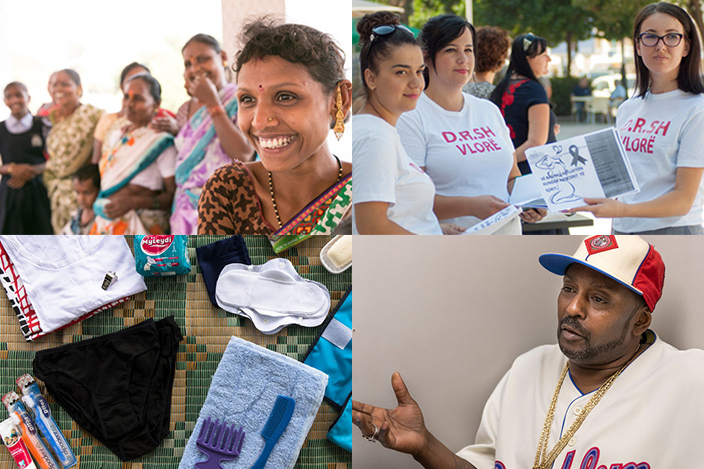
Universal Health Coverage – what is it?
IPPF welcomes the adoption of the Universal Health Coverage (UHC) political declaration in the United Nations General Assembly. We are pleased with member states’ recommitment to respect, protect and fulfil the right to health for all, without discrimination of any kind. We also congratulate governments’ unequivocal support to gender equality and urge them to invest domestic funds and to integrate sexual and reproductive health services into national UHC packages. Make no mistake, the promise of UHC by 2030 won’t be achievable if investments in women and girls’ rights and SRHR (sexual and reproductive health and rights) are not increased. IPPF looks forward to work with Governments and other stakeholders to make the right to health, SRHR and gender equality a reality for all, in particular for women, adolescents and girls, and youth especially the ones left behind. What is UHC? Universal Health Coverage (UHC) means that all people can obtain basic health services when they need them, without suffering financial hardship. UHC must include addressing barriers people face when seeking healthcare services, and ensure they are available, accessible, acceptable, affordable and of high quality. Achieving this is vital because healthy populations can better contribute socially and economically, while poor health is a major driver of poverty. UHC has its origins in the 1948 World Health Organization Constitution, which declares health a fundamental human right, and commits to ensuring the highest attainable level of health for all. Unfortunately, this is currently not a reality for millions of people around the world. In fact, every year more than 100 million people fall into poverty because of out-of-pocket health spending. To make matters worse, women suffer higher costs relating to sexual reproductive healthcare than men. However, there is a way to address these issues, and this is through governments fulfilling their commitments to Sustainable Development Goals (SDGs). Over 180 states have promised to try to meet the SDGs, which are the blueprint to achieve a better and more sustainable future for all. Ensuring sexual and reproductive health rights for all yields high returns for sustainable development and is critical to achieving true UHC. There are two SDGs that will facilitate this: SDG 3 – Health and Wellbeing SDG 5 – Gender Equality Watch: Universal Health Coverage: a call to action What is IPPF’s contribution to UHC? IPPF and its Member Associations (MAs) address obstacles that limit vulnerable and marginalized populations’ access to services by challenging discrimination and advocating for policies that ensure universal access to information and services. Recognizing the financial burden of out-of-pocket healthcare expenditure, our MAs’ ‘no-refusal policy’ ensures that all clients receive services, regardless of their ability to pay. Through our MAs, we also contribute to strengthening national health systems, such as by training government healthcare workers and supplying contraceptive commodities. IPPF is committed to tackling the social determinants of health and upholding the sexual and reproductive rights of the vulnerable and marginalized.
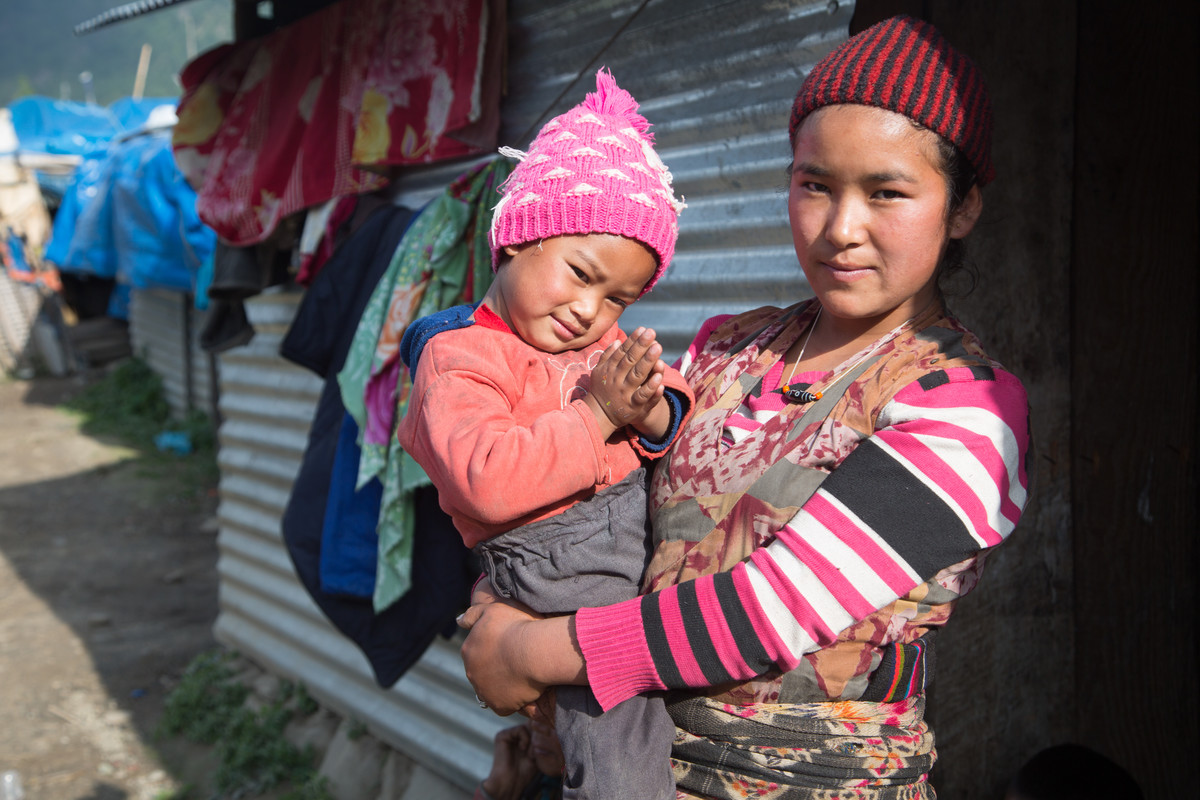
IPPF welcomes outcome from the 63rd Session of the Commission on the Status of Women
IPPF is pleased to welcome a successful outcome from the Commission on the Status of Women at its 63rd Session this year, focusing on “Social Protection, Access to Public Services, and Sustainable Infrastructure for Gender Equality and the Empowerment of Women and Girls.” The Agreed Conclusions provide vital guidance on the role that social protection, public services and sustainable infrastructure can have in dismantling unequal systems of power that disadvantage women and girls. Taking on the topic for the first time, Member States emphasized that social protection, public services and sustainable infrastructure are interlinked and mutually reinforcing; stressed the need for coordinated approaches, financing and policy coherence; and requested the revision of cash transfer conditionalities that reinforce gender stereotypes. They urged a comprehensive, integrated approach to ensure gender-responsive policy-making, specifically calling for gender-responsive migration policies, social protection floors, accountability mechanisms for social protection, public services and sustainable infrastructure projects, and strategies to mitigate and adapt to climate change. Furthermore, Member States recognized that health disparities, including reproductive health and inadequate access to family planning services, are exacerbated by multiple and intersecting forms of discrimination and urged governments to ensure acceptable, accessible, available and quality health care services. As in past years, the Commission reaffirmed the need for governments to ensure universal access to sexual and reproductive health and reproductive rights and the human rights of women including the right to have control over and decide freely on all matters relating to their sexuality. The Agreed Conclusions also reaffirmed prior agreements on education, gender-based violence, the need for policies that address the diverse needs of families, as well as the responsibility of the state to protect women human rights defenders. We congratulate the Member States for finding common ground on critical issues and demonstrating the continued critical importance of the Commission on the Status of Women and defending and advancing women and girls’ rights year after year, despite particularly aggressive strategies this by some groups attempting to chip away at established rights for women and girls. IPPF is committed to remaining a strong partner in protecting and promoting women and girls’ rights and we look forward to the 25th anniversary of the Beijing Platform for Action in 2020.
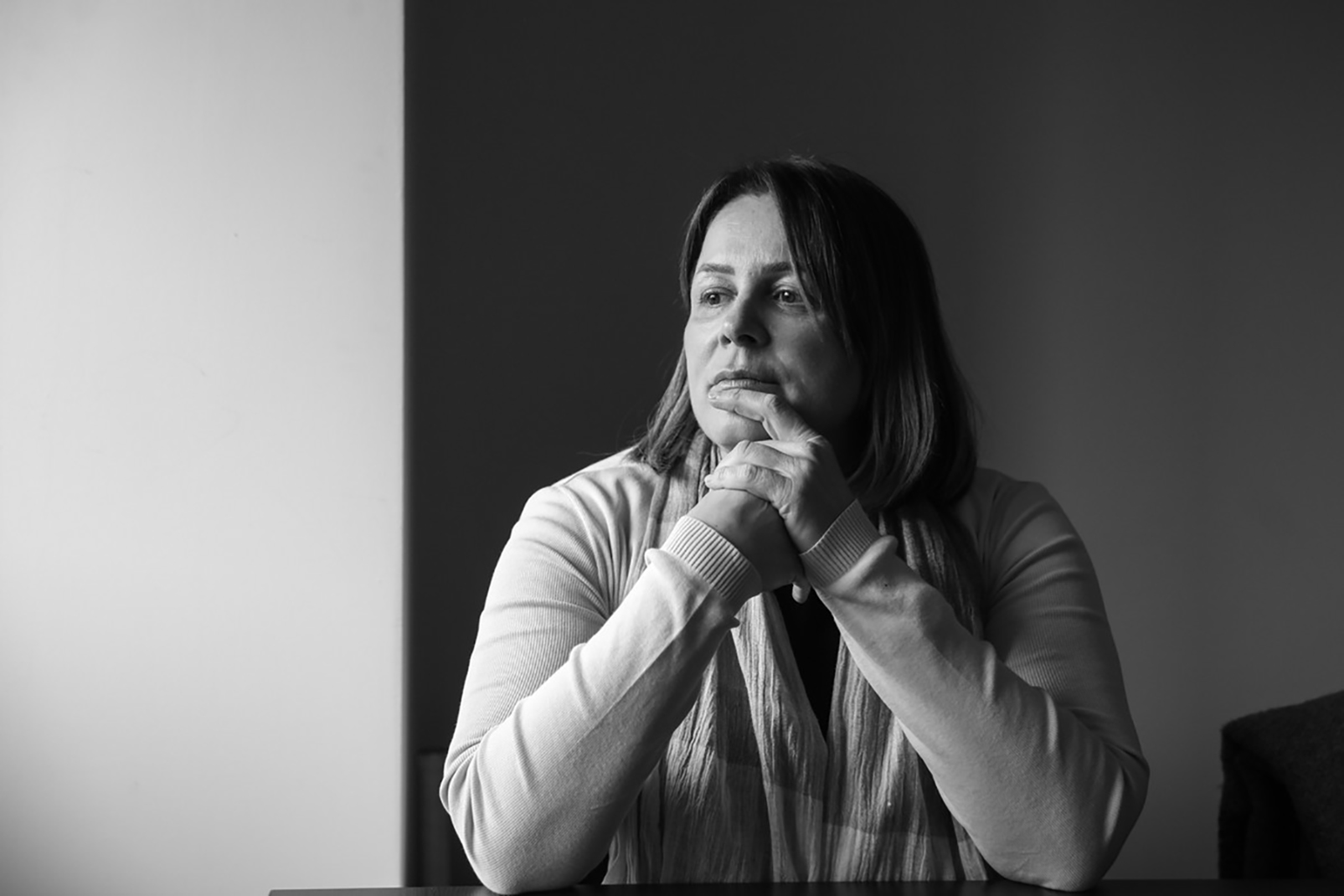
Women in Leadership: Dragana Stojanovic, Serbia
Dragana Stojanovic grew up in socialist Yugoslavia and has been the Executive Director of the Serbian Association for Sexual and Reproductive Health and Rights (SRH Serbia/SRHS) for 12 years. She is a passionate advocate for gender equality. As part of our Women in Leadership series, IPPF spoke to her about the challenges women and girls face in Serbia. When you were growing up what was your experience of SRHR? Living in a secular society without much interference from the church actually provided some form of equality between men and women. For example, it meant that men and women were able to take part in the labour force. One of my first experiences of sexual and reproductive health and rights was the understanding that abortion was not a taboo topic. It became legal in 1969 under the Socialistic Federative Republic of Yugoslavia. It was not something that the women had to shy away from and because the church was not strong at the time, there was a chance to talk openly and freely about abortion and reproductive health. In the 1990s after the dissolution of Yugoslavia it was even more acceptable to talk about sex, about the implications, about relationships, about pleasure even – far more than it is now. I would say that the transition to a sort of post-socialistic capitalism has stopped young women being free enough to speak about their body, to speak about their options in life, to speak about their work and to have prospects they can call their own. The issues around SRHR are much more of a taboo now. How and why did you first get interested in SRHR? I think I was always interested in SRHR. When my friends and I hit puberty, I saw that many of them didn’t know about the changes their bodies were going through – especially the girls. Their mothers were too shy to explain it to them and their fathers weren’t engaged enough. That’s the moment when I realized that I had the power to decide for myself, that SRHR was my choice and that what happened to my body was my choice. During my 15 years of working with HIV positive people, and preventing HIV and AIDS, I saw that a lot of women got infected because they weren't protecting themselves. They had not been brought up knowing that their bodies were their rights. This is when I became interested in this particular part of our work – how to make our bodies ours again. What changes have you seen in Serbia over the years when it comes to sexual health? The changes are very negative I have to say. We live in a very right-wing oriented society at the moment. The society that we live in is also very focused on the embryo. Society idolizes the whole concept of conception but does very little to help people get a decent quality of life. What areas are still taboo here in Serbia? Intimacy, kissing, sex for sure and the biggest taboo of all is sexual pleasure. So, women are now not allowed to have sex for pleasure, they can only have sex for reproduction. This is how society has come to view sex. How do you push for changes in Serbia? I like to think that changes come when you are honest and authentic in what you believe. I can honestly say that in the past seven or eight years we have been trying to advocate and push for better strategies around sexual and reproductive health in Serbia. We have worked with colleagues across Serbia and Ministry of Health to achieve these strategies. All of the things that we expect are the things we believe are in line with international adoptive laws and standards, and we simply refuse to live by the norms. Do you see the signs of change and if so – what? At the moment, I don't so. I am sad to say that there seems to be no potential for change. I am very sad to see that a lot of victories that we had won have been taken away from women. I am concerned that abortion law may be tightened here. Sexual and reproductive health and rights are essential to us. It's who we are, what we know about ourselves, the self-respect, self-esteem, how we behave, what we do and that’s why I am fighting for change in Serbia. Watch: Confronting gender stereotypes in Serbia:
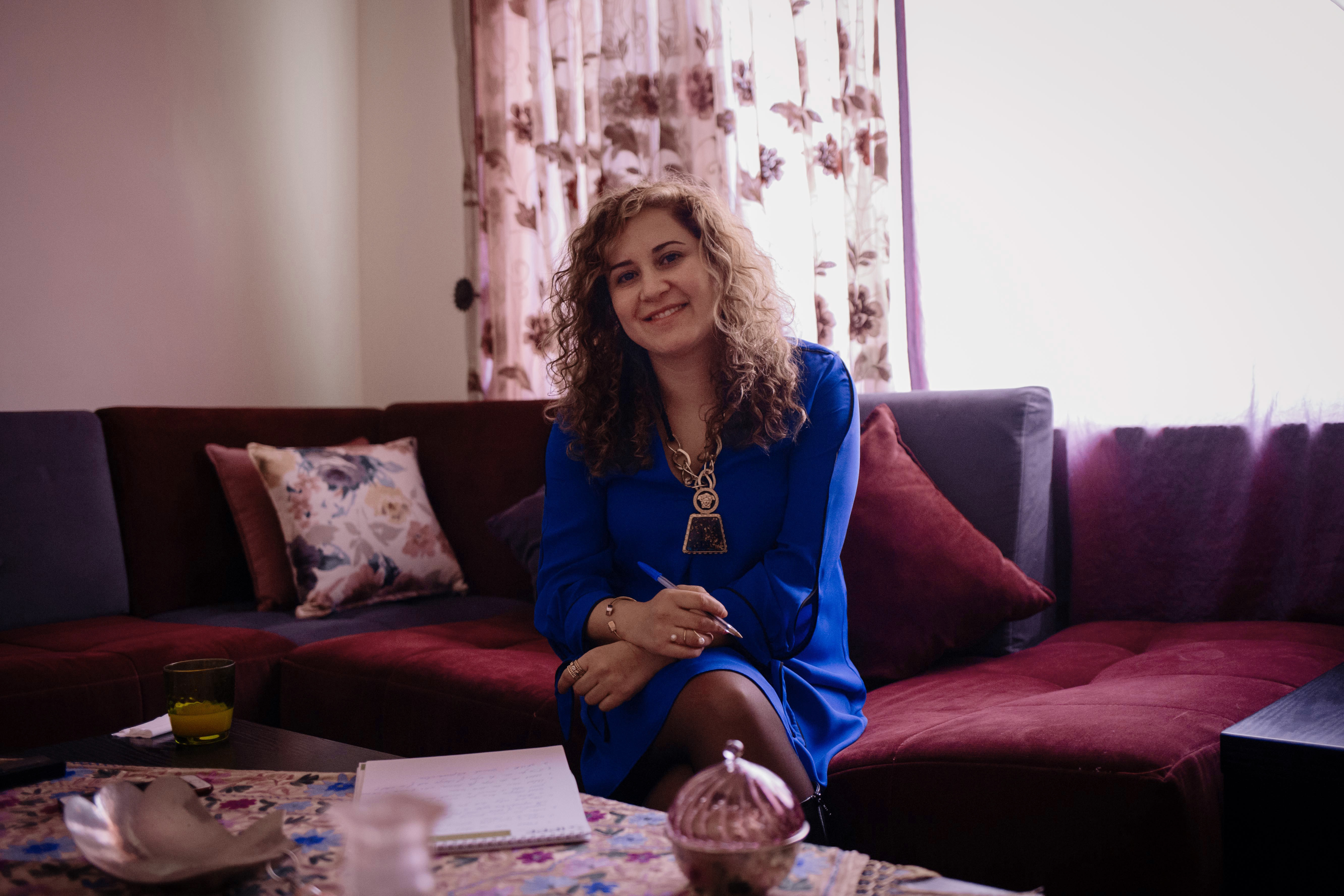
Women in Leadership: Lina Sabra, Lebanon
For our Women in Leadership series, we interviewed Lina Sabra, the Executive Director of the Lebanese Association for Family Health (SALAMA). How did you get into sexual and reproductive health and rights (SRHR)? I started working on sexual reproductive rights and women’s health issues when I was doing my MA in Sociology at a Lebanese university. I attended a conference by the Lebanese Family Planning Association when I was 20, and then became more involved in these issues. After that, I became a youth volunteer at the Lebanon Family Planning Association. I was then elected as the Arab World Region (AWR) Youth Representative for the Governing Council from 2003 till 2004. Even my family are now interested in SRHR. When my 12 year old niece had an assignment in about researching NGOs, she decided to focus on SALAMA’s mission, vision, and objectives. What was it like growing up in Lebanon when it came to SRHR? I grew up in a rural area in the Bekaa. In these areas, sexual reproductive health is not talked about, even in schools. We didn’t have sexual education, only biology lessons teaching us about reproduction but not sexual education. We still don’t have these lessons in the curriculum – the first time I heard about sexual education was at university. When it comes to SRHR what does Lebanon need to focus on? In providing comprehensive sexual education so that children can go through their school lives being educated in a healthy and informed way regarding these issues. We should also focus on raising awareness for women and girls, but also men, because sexual reproductive issues include them, as well as religious leaders, decision makers etc. most of whom are still men. Besides, sexual reproductive health issues affect everyone. How have the issues around SRHR changed? There is greater awareness of SRHR now that women and girls have greater access to education. There’s been a decrease in infant mortality and increase in awareness as more women are now working and engaged in the labour force. The average age that girls are getting married has also gone up and Lebanon is working on laws to improve this further. These issues are no longer taboo. Now people are aware of family planning and they are accessing it more than before. Advocating SRHR is hard in Lebanon because we have a lot of challenges: religious leaders, political parties etc. who try to impose their views. That’s why we need to work as a coalition of NGOs and networks together to bring about effective change. Recently Lebanon has seen women get elected in parliament and become ministers and they are working on these issues and will hopefully help NGOs to raise awareness and push for change. Different NGOs, organizations and networks are currently working on changing/updating laws and policies related to early marriage, domestic violence, people living with HIV rights, and marital rape. SALAMA is planning to work on the laws and policies related to sexual harassment at workplace. What taboos do people still face? People living with HIV/AIDS face social stigma and discrimination. Divorced women, young women and women who have abortions also face stigma and discrimination. Also, having an alternative sexual orientation is still not fully accepted in Lebanon. A key reason for these taboos is because the laws are related to religion. We cannot talk about changing anything unless we change the mind of the religious leaders. Many of the existing laws and policies regarding sexual and reproductive health/right need to be updated or changed. For example, abortion is still unlawful here unless it’s considered to endanger the woman’s life. Also, there is no law or policies to prevent sexual harassment in the workplace. Thus, people especially women and girls do not report any case in order to not be blamed themselves or stigmatized or fired. What is SALAMA doing for International Women’s day? Every year for International Women’s Day and Mother’s Day we conduct a campaign in Arabic called ‘Your wellbeing is our aim’. During the campaign, we provide services and medication for free and provide transportation for refugees for free. An outreach team brings them to the clinic from camps and they can then have increased access to our services. This happens every March at SALAMA’s SDP in Zahleh-Bekaa governorate.
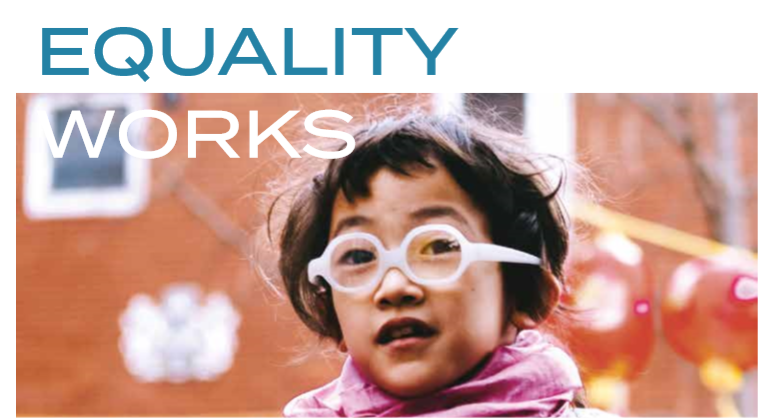
IPPF honored to be commended as a "high achiever" in the Global Health 50/50 report
The International Planned Parenthood Federation (IPPF) has been commended as a high performer in the Global Health 50/50 2019 analysis of gender equality policies and practices among global organisations active in health. Of 198 global organisations reviewed for the report, which is published today (7 March 2019), 31 were commended for their performance, including IPPF. IPPF Director General, Dr Alvaro Bermejo, said: “We are honored and delighted to be commended in the Global Heath 50/50 report. As a Federation which focuses so much on providing essential care for, and fighting for the rights of, women and girls in countries around the world, IPPF is committed to reducing gender inequalities in the global health workplace, including our own. It’s apt that this very important report is launched on the eve of International Women’s Day and that it is entitled “Equality Works”. It does, and inequality does not. I echo the words of New Zealand’s Prime Minister Jacinda Ardern in her foreword in the report; global health organisations can, indeed must, lead the way by building fairer, more equal workplaces. Despite this commendation, IPPF still has more work to do. We intend to do everything we can to ensure that we are a very high performer in the practice of gender equality across our Federation. We and every organisation studied owes a debt of thanks to Global Health 50/50 for holding us all to account.” Note: Global Health 50/50, which was launched in 2018, seeks to advance action and accountability for gender equality in global health. This year’s report focuses on workplace policies to support gender equality and promote respectful, dignified and diverse workplaces. In addition to the variables we reviewed last year which assessed the extent to which organisations consider gender as relevant to their mandate both internally and operationally, this year we also reviewed policies for preventing sexual harassment, supporting parental leave and flexible working, and published gender pay gaps.
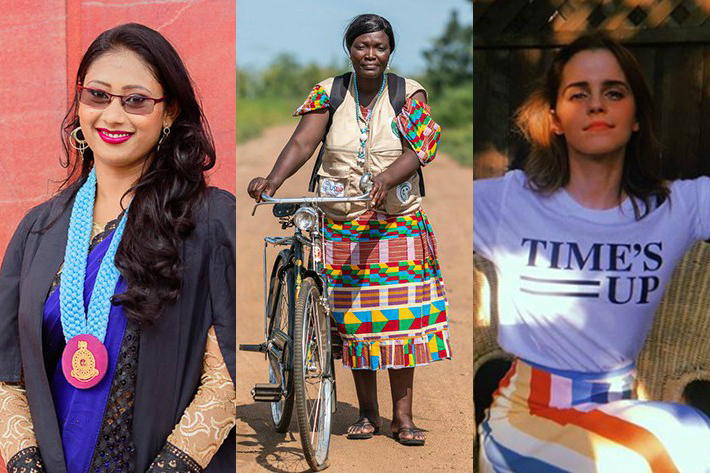
Celebrating passion and commitment this International Women’s Day
International Women's Day (8 March) is a time to celebrate the incredible achievements of fearless women around the world. Today (and every day) we’re honored to highlight the passion and continued commitment of doctors, nurses, peer educators, activists and volunteers who dedicate their efforts to advancing sexual and reproductive health and rights globally. These are just a few of them: Chathurika Jayalath, youth volunteer, Sri Lanka In May 2017, flash flooding in Sri Lanka triggered landslides resulting in many people losing their homes and forcing them to seek emergency shelter. 24-year-old student Chathurika, a youth volunteer for IPPF’s Member Association the Family Planning Association of Sri Lanka (FPASL), took part in the response. She helped in organizing the health camps, and she even runs a youth club at her university to inform her peers about sexual health. Find out more about Chathurika inspiring community contributions Emma Watson, actor & activist, UK For almost as long as she’s been in the spotlight, actor Emma Watson has been well known for her feminist activism. Over the years she has lent her support to many vital issues including ending child marriage, violence against women and female genital mutilation, as well as fighting for abortion care and LGBTQI rights. She’s also a partner to IPPF! Keep up with Emma’s important work by following her on Twitter now Vicky Acora, volunteer, Uganda Vicky is a married mother-of-two. She faces all the usual challenges that women face when it comes to getting sexual and reproductive health services - but Vicky’s life is complicated further because she is deaf. In the past, she would have trouble communicating with health staff who did not understand her needs, but since seeking services at Reproductive Health Uganda’s clinic in Gulu (a Member Association of IPPF), she has been able to get the healthcare she needs. She has since then even been advising other deaf people to seek services with the clinic. Read more about Vicky’s experience Dr Leana Wen, president of PPFA, USA IPPF was thrilled when Dr Leana Wen was appointed as President of Planned Parenthood Federation of America last year. She is a dynamic public health leader, a practising physician and not least, a formidable woman. Since she started her demanding role, she has helped Planned Parenthood continue to provide high-quality care to the people who need it across the United States, and she is a powerful voice in our fight to ensure that women have the ability to make their own healthcare decisions. We look forward to seeing what she will achieve next. If you do too, then follow Dr Wen on Twitter Abla Abassa, health worker, Togo Abla is a community health worker. She spends her days cycling around her home village’s dusty streets in rural Togo visiting households who have signed up to an innovative programme that provides contraception in hard-to-reach places. She might visit as many as five households in one day, where she’ll discuss and provide family options including the Pill, condoms and injection, with people who might otherwise not know what their choices are. Find out more about what her vital job entails
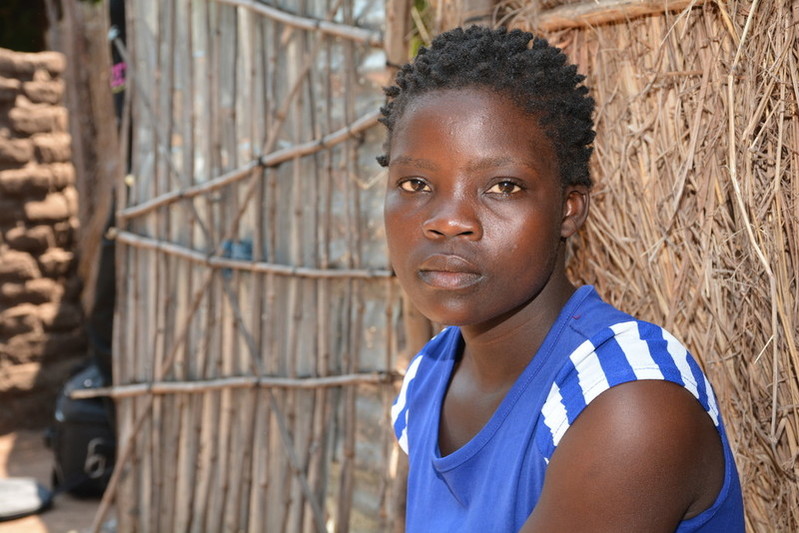
Tackling child marriage in Malawi
Malawi has one of the most comprehensive laws against child marriage in Africa after a new bill was passed in 2017 increasing the legal marital age from 15 to 18-years-old. The Marriage Act of Malawi in 2017 protects any girl under the age of 18 from marriage and holds parents or other family members who marry their children off below the age accountable and liable to prosecution. But even with the law, cases of child marriage are still happening but community Watch Groups have been set up to help. This is the story of one girl helped by her local watch group. Family Planning Association of Malawi (FPAM) with money from the Japan Trust Fund supports the watch group by building the capacity of its members. Five members of the Jalasi Watch Group have been trained about the law, policies around the issue of child marriage and how they align with the by-laws. © Photos: James Ngechu







